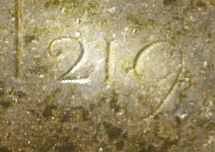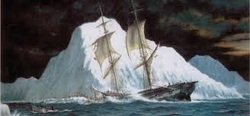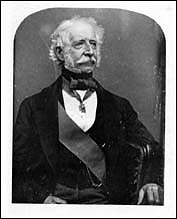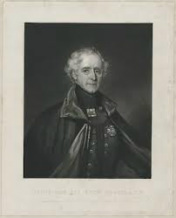Sorry I can't be there, if I had only know sooner, but I shall be attending a members meeting of a social club of the north of Scotland which has passed its bicentenary.
4 Comments
 by Aine Fitzgerald Published on Sunday 20 January 2013 16:30 JAPAN’s Jiroemon Kimura may have became the world’s oldest man last week aged 115 years, but buried beneath County Limerick soil is a 219-year-old-John Murphy. The tombstone of the mystery man - who is surely a candidate for the Guinness Book of Records - has been discovered in the cemetery at St John’s Church in Knockainey by a local historian. Michael Quinlan was researching his new book on the church when he came upon the unusual inscription. “When anybody sees it – they are quite amazed,” said Michael. “The fact is, it is written in stone! It is dating from 1784,” he explained of the gravestone. The oldest grave in the cemetery dates back as far as 1736 but undoubtedly the most unusual headstone is that of John Murphy of whom very little is known. His gravestone simply reads ‘died aged 219 years’. According to Michael, it is “impossible” to do any research on the individual “as there is no documentation or parish record going back as far as that.” Due to age of the grave, and in turn the faint inscription, the surprising information has escaped the attention of many visitors to the graveyard - until now! “The news is spreading,” said Michael. “We have a 20-stop tour of the graveyard prepared and ready and all these things could come into a little story,” he pointed out. All the gravestones in the graveyard are recorded and numbered and a display panel which is located inside the front gate directs visitors to the exact location of each burial. Meanwhile, back in Japan and Kimura, a former postman who is 115 years and 258 days old, dodged childhood killers such as tuberculosis and pneumonia that kept life expectancy in Japan to 44 years around the time he was born, in 1897. Kimura has defied the odds against his gender as well. Men make up only 15 percent of centenarians, according to Boston University researcher, Thomas Perls. On the one hand you have discover Ireland sponsoring the "Who do you think you are? Live" in the UK in February and the other you have the GRO doubling the cost of getting certs. Are we trying to encourage tourists to come over here and discover their Irish roots?  Famine and Shipwreck, an Irish Odyssey Check this out on youtube: The story of The Hannah, an Irish famine ship that hit an iceberg in 1849. Above is an artists interpretation of it A city councillor in Galway, Ireland, is calling for a genealogical centre to be opened for tourists visiting Galway for the "Gathering." Councillor Nuala Nolan is urging both City and County Councils to provide a research genealogical office in the City Centre.
Nolan says that visitors coming to Galway for the "Gathering" will be able to check records to find long lost relations or visit areas where their ancestors have come from. Lionel Logue, the Australian actor who played King George's speech therapist is believed to have family connections to St Brigids and that his ancestors lived in Stillorgan.  If you are serious about starting a family tree then take a look at the booklet produced by the National Library of Ireland. Here' a brief intro. Best of luck, hope to see you all Saturday 2nd Feb Karen Getting started Your research begins with you and your immediate family. Ask questions of family members you think might know a little bit more about your family history. Consult old photographs on which names and dates may be noted, newspaper clippings, old letters, family Bibles as well as family gravestones. Try to establish approximate dates (of births, marriages and deaths) as well as names (forenames and related family names) and places of residence. This information will point the way to relevant records. Religious denomination is also important in determining which records are relevant to your research. Begin with census records and civil recordsAlthough a census of the Irish population was taken every ten years from 1821 to 1911, the earliest complete surviving Census is for 1901. The 1901 and 1911 Census are both fully searchable online, free of charge on theNational Archives website. State registration of all non-Catholic marriages in Ireland began in 1845. In 1864, civil registration of all births, marriages and deaths commenced. These records are held at the General Register Office in Dublin. An index to records of civil registration in Ireland from 1845 to 1958 is available on theFamily Search website. If you are starting out on the ancestral trail we recommend that you read our information booklet Family History Research: Sources at the NLI (0 MB, Adobe PDF), or visit our Genealogy Advisory Service which offers free advice on resources for tracing your family history. Family historians will be able to access 21 million birth, marriage, and death records free of charge, on Thursday 24th of January.
Findmypast.ie based in Dublin, at the heart of Irish family history are hosting the inaugural “Irish History Family Day," to celebrate the launch of the records online. The family history website will publish records covering the island of Ireland from the 1800’s right up to the 1950’s. Findmypast.ie carries the most detailed and throrough collection of records ever seen in one place. Cliona Weldon, General Manager at findmypast.ie, said: “The addition of 21 million new birth, marriage and death records to our website on “Irish Family History Day” means we will now have more than 60 million Irish records on our website – including census and parish records – for people to easily navigate and discover their past, no matter where they are in the world. There has never been a better time for people to explore and discover the details of the lives of their Irish ancestors.”Births, marriages and deaths are central events in peoples’ lives, people researching their family history can use these records to develop their family tree. Findmypast.ie provides a fascinating insight into Ireland’s history and it makes Irish family research much more easier and accessible than ever before.They are also a proud partner of The Gathering Ireland, which is a year-long celebration in 2013 of Ireland and all things Irish. “With so much attention on Ireland due to The Gathering Ireland, our website will prove a very useful source for the many millions of people with Irish ancestry around the world,” said Weldon. Findmypast.ie works with all the major stakeholders in Irish genealogy, such as Eneclann, the National Archives of Ireland and the National Library of Ireland. They also have an international reach through the findmypast family of sites. |
Historical StillorganThe bloggers are local who have a passion for history verging on the obsessive... Archives
July 2014
Categories |


 RSS Feed
RSS Feed
